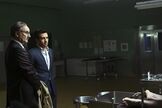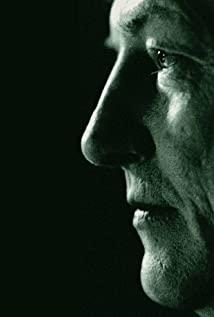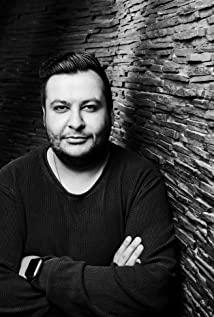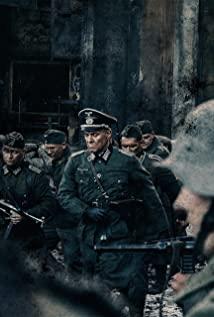I happened to be watching "The Great Movie" recently, and the above is a screenshot of the first paragraph of the introduction. If you use this standard, "Not Guilty Murder: The Coligny Case" is a very good movie.
The film is adapted from the best-selling novel "The Corigny Case" by the German author Ferdinand von Schilach based on real historical events. Due to the influence of this book, the German Minister of Justice announced the establishment of a historical investigation committee, which changed the German state. legislation.
Based on the novel, the film revolves around the trial of the suspect, Colinny, who shot and killed entrepreneur Meyer. The young lawyer Ryan, who defended Colinny, focuses on the process from his defense to the sentencing of the case, and takes Colinny's childhood experience in World War II to the development of revenge murder after retirement as a supplementary line. The main line confirms Colinny's innocence from the legal process, and the auxiliary line restores the cause, process and circumstances of the murder.
The key defense lawyer Ryan also found Colinny guilty, and used this judgment to communicate with the suspect Colinny, which was once deadlocked. Until Colinny persuaded him to care more about his father, and woke Ryan to investigate Colinny's motive for murder. During the investigation, Lane found key witnesses and documentary evidence with the help of his father and a female student who worked part-time in the restaurant, uncovering the truth buried by time. Meyer, who saw the shooting of innocent people in World War II, and watched his father get killed. Meyer kills the weeping Colinney. After the war, Colinny and his sister sued Meyer, a Nazi remnant who killed his father, and were rejected. They lived in abstinence for decades until the death of their sister. After retirement, they tried the war criminal Meyer with a gun.
During the investigation, Lane also discovered the unfairness of Germany's post-war legislation in addressing the problems left over from World War II. Because of the unfairness of the legislation, victims like Coligny could not seek justice. Meyer's attorney, Chad Martineger, was Lane's mentor and one of the drafters of the Unreasonable Act, the Dreyer Act. Martineger encouraged Ryan to defend Colinny, and urged Ryan to persuade Colinny to plead guilty, so that the case could be successfully concluded. Lane is a budding poor lawyer, Martingale is the founder of a well-known law firm with many lawyers, and his strength is relatively mysterious. In the end, Ryan won the lawsuit for his pursuit of truth and legal fairness, and brought justice to Colinney, while the barrister Martineger lost his lawyers because of his surrender to power and speculation about reality now. professional ethics.
Fortunately, Germany has generally maintained a good legal error correction system after the war. The presiding judge of the case also gave Lane the opportunity to seek the truth, and finally made a reasonable judgment.
Although Colinny committed suicide in the end, the support of all the forces of justice during the verdict allowed the society to understand the tragic past of his childhood that he could not tell, and to endure the pain and hatred for decades, which is also a lot of comfort.
The film allows us to understand the true story through the screen, and also through the faces in the light and shadow let us know the different manifestations and results of good and evil, right and wrong. Coupled with different levels of thinking, it even improves our eyesight, helping us make choices and become better people.
View more about The Collini Case reviews











